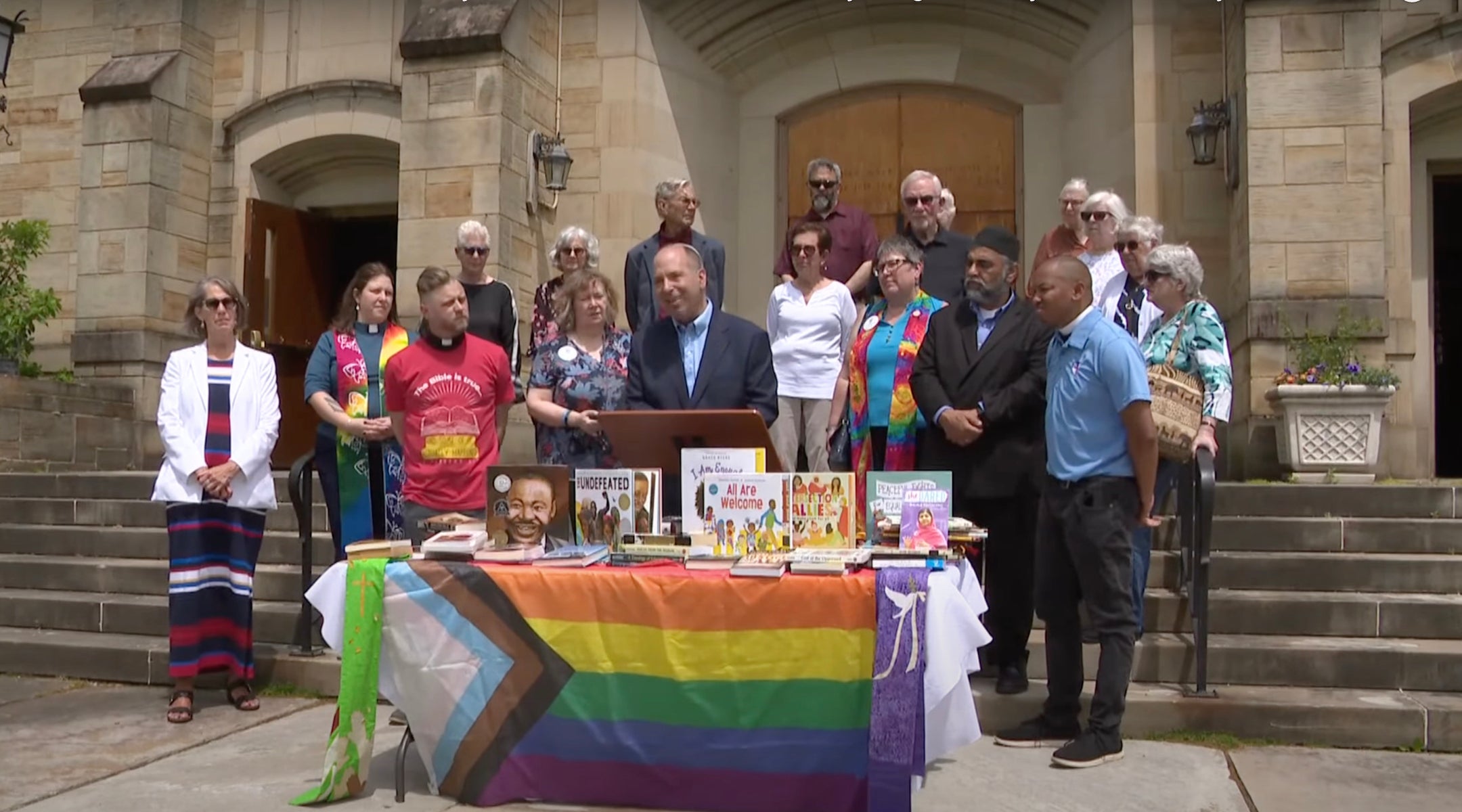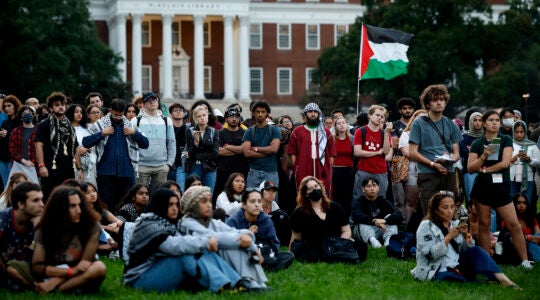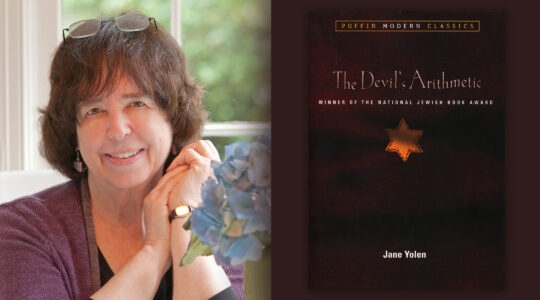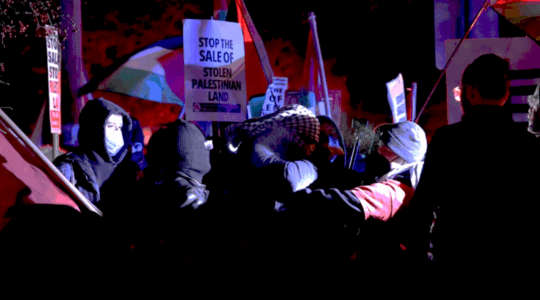A man checked out dozens of books on Jewish history and other marginalized topics from a public library in a heavily Jewish Cleveland suburb before filming himself apparently setting fire to them, local authorities said.
Local Jewish leaders decried the incident at the Beachwood Public Library, appearing alongside other interfaith leaders at a press conference Monday outside a local church to denounce the burnings.
“Whoever perpetuated the idea that you can burn us out of Cleveland, deport us out of Cleveland, deny our ideas or press us and frighten us, picked the wrong community,” Rabbi Robert Nosanchuk of Congregation Mishkan Or, a Reform synagogue in Beachwood, said at the press conference.
The books the man burned included a copy of “The Diary of Anne Frank” and a title dealing with “Jewish Solidarity,” a researcher with Princeton University’s Bridging Divides Initiative told the Jewish Telegraphic Agency. The Princeton lab, which tracks political violence, first flagged the man’s video with the library after seeing it on the social network X.
The researcher, who requested anonymity owing to the nature of the group’s work, described the book selection as “something that you would expect of someone that is going into the library and trying to get books about Jewish authors and the Holocaust and everything.” In addition, the man had also burned books related to Black and LGBTQ topics.
“I think the act of targeting these materials, burning them, carries specific threatening connotations with it,” the researcher noted.
The Princeton lab had first seen the video on an account affiliated with the white-supremacist group White Lives Matter Ohio, which appeared to have since removed it. Local media also reported that material related to the burnings had made its way to the social network Gab, which is popular with extremists. JTA could not independently locate the video; local clergy told media they were deliberately not circulating it, in an effort to tamp down on its influence.
The book-burning incident appeared to be an unusual local manifestation of a simmering culture war over books reflecting diversity, one that has occasionally ensnared Jewish books and has lately been folded into the Trump administration’s push against diversity initiatives.
According to local media descriptions of the police report, the man burned around 100 books in total across multiple trips to the library in April, including other books “on topics including Jewish history, African American history and LGBTQ education,” which he obtained after telling librarians he had a son in the LGBTQ community. Multiple spokespeople for the Beachwood police department declined to provide the report to JTA.
“The Beachwood Police Department is actively investigating this incident,” police chief Dan Grispino said in a statement. “Our department stands against antisemitism and all acts of bias-motivated crimes. We are committed to vigorously investigating and prosecuting any hate-motivated incidents within the City of Beachwood. Our priority is to maintain a community that can thrive without the fear of threats of intimidation or violence.”
A spokesperson for the library also declined to provide additional information on which books were targeted, citing an Ohio state law that forbids the release of any patron information. If the man is determined to have committed a crime, the library said, the police may make the information public. He could potentially be charged with destroying city property if the books he checked out are found to have matched the books he burned.
The spokesperson also told JTA the library would be replacing all of the burned books. In addition, local residents have donated upwards of 1,000 books to the library in response to the incident.
That surge of donations was a notable outcome for the Princeton lab, whose researcher said they appreciated how local clergy have led the community in coming together to reject acts of hate.
“The backfire of, for every one book that’s stolen, 10 will be donated, is really encouraging,” they said.
JTA has documented Jewish history in real-time for over a century. Keep our journalism strong by joining us in supporting independent, award-winning reporting.






